 |
Craig White's Literature Courses Historical Backgrounds The Iroquois Confederacy a.k.a. the Haudenosaunee or People of the Longhouse; "The Five Nations" or "The Six Nations" (Mohawk, Oneida, Onandaga, Cayuga, Seneca, and (later) Tuscarora |
 |
![]()
American dominant culture tends to regard "American Indians" as a single people—much as many Americans think of Africa as one country, when it has many different nations, peoples, and languages.
Before contact with Europeans, North America was home to many "first peoples," most of whom lived in communities of 50-100 people and, with exceptions, had only limited knowledge of or contact with each other. As a result, learning about American Indians is an unending task. If someone says they know a lot about American Indians, the first question should be, "Which tribe?"
The Iroquois are among the most famous and enduring American Indian peoples, whose history uniquely combined with the history of European America.
The name "Iroquois" (pronounced "EAR-uh-kwoy") is from French explorers and settlers. Its original meaning is disputed. The Iroquois people call themselves the Haudenosaunee or "People of the Long House."
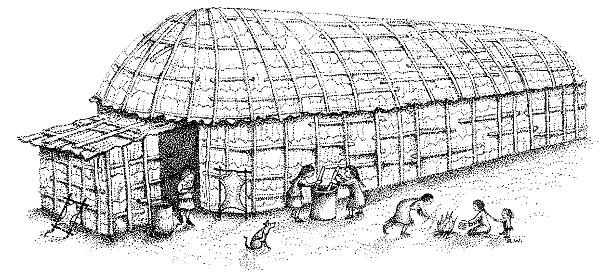 Long House Exterior |
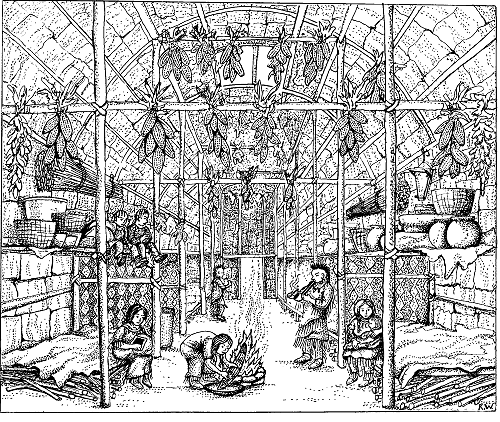 Long House Interior |
The Iroquois or Haudenosaunee were actually a league of Five Nations:
Mohawk, Oneida, Onondaga, Seneca, Cayuga
These peoples lived in the Finger Lakes region of New York State. In the 1700s a historically related tribe who had moved south, The Tuscaroras, removed north to join the Confederacy, which then became the Six Nations.
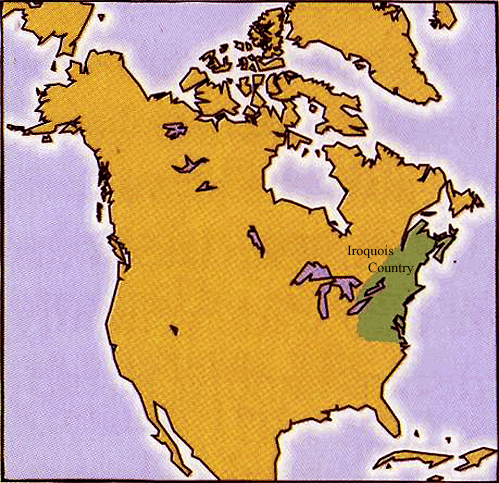
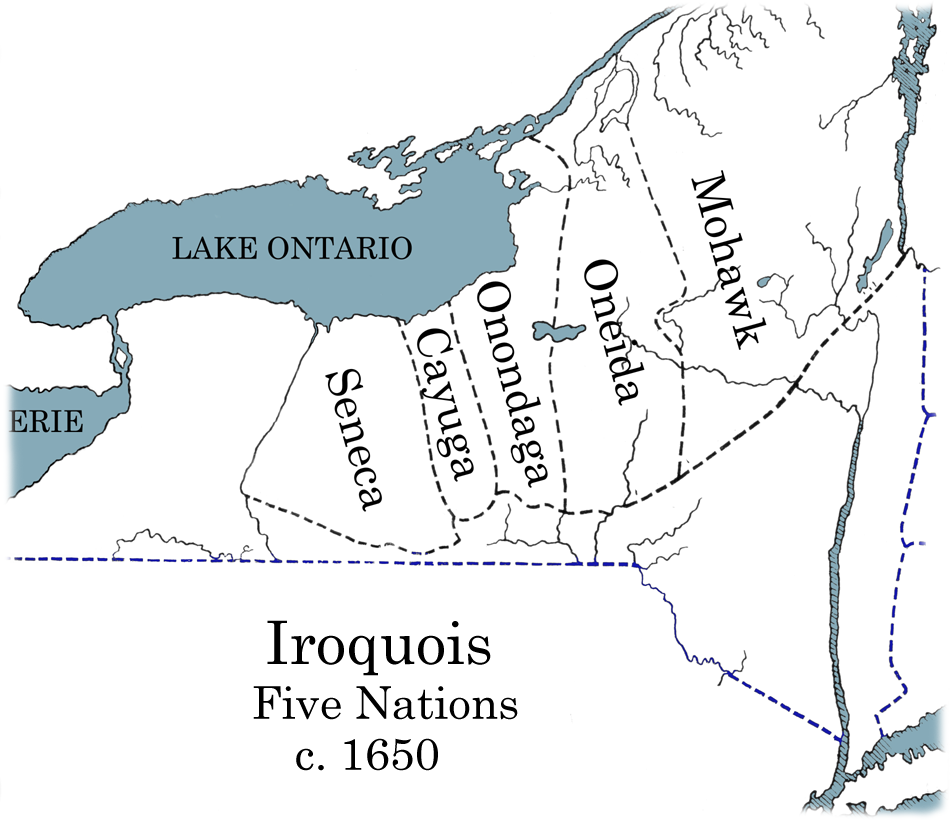 |
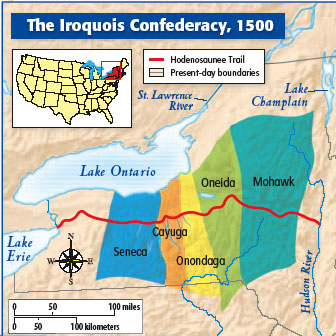 |
Two unique features of the Iroquois account for their interests to historians and also perhaps for their comparative survival.
1. The Iroquois formed a large-scale, enduring political and cultural alliance that gave them considerable power over their non-Iroquois neighbors. The essential founders of this Confederacy were The Great Peacemaker, a.k.a. Deganawida, and Hiawatha, a gifted politician and orator. Later leaders included Cornplanter and Handsome Lake.
2. Unique among North American Indians, the Iroquois had a form of writing or record-keeping through the use of wampum.
Edmund Wilson, Apologies to the Iroquois
Joseph Mitchell, The Mohawks in High Steel
Mohawk Indians:
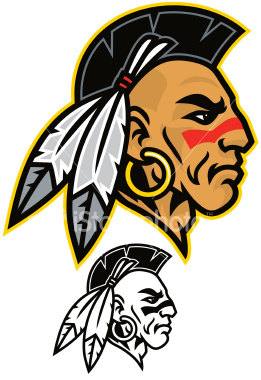
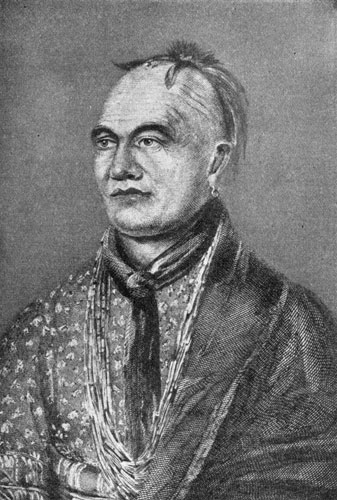
Joseph Brandt - Thayendanegea
![]()